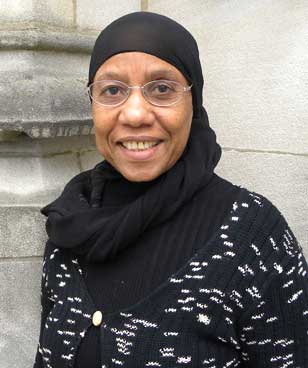Spotlight, January 2012

Storytelling and the oral tradition play strong roles in African languages and cultures, so it seems only fitting that Alwiya Omar—Clinical Professor of Linguistics—has begun using storytelling as a key pedagogical approach in her language courses.
Omar and the other instructors in the African Language Program are continually revising the language courses to increase student engagement and performance. Drawing on best practices in the field of foreign language instruction, they seek to make the classroom student-centered, utilize the target language as often as possible during class, and incorporate the use of technology in meaningful ways. Omar’s storytelling activities draw on each of these practices to help students practice their developing language skills.
Much of her storytelling approach centers on a core activity in her upper-division language courses, the written and oral presentation of a series of personal stories and news stories. At several points during the semester, the students are asked to write a story about their experiences or a current event in the target language. The students post their developing stories to a wiki in order to receive feedback from classmates and instructors, and then they revise, record, and publish an oral version of the story in a podcast.
The storytelling activities have led to increased student motivation and performance, in part because of the control the activities allow students to have over their own language learning. Omar says, “It’s amazing seeing their motivation in doing these stories . . . it really shows how much they want to be in control of what they’re doing. They choose the topics for what they want to write for their stories. They have accomplished a lot. At the beginning they hesitate, but as the semester progresses they can tell how they have improved. They do oral proficiency interviews at the middle and end of the semester, and they see how they have progressed; and we can see that they have met the desired goals that we have established.”

